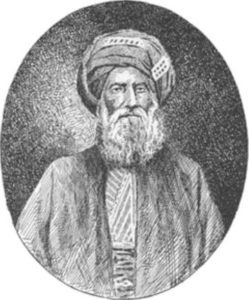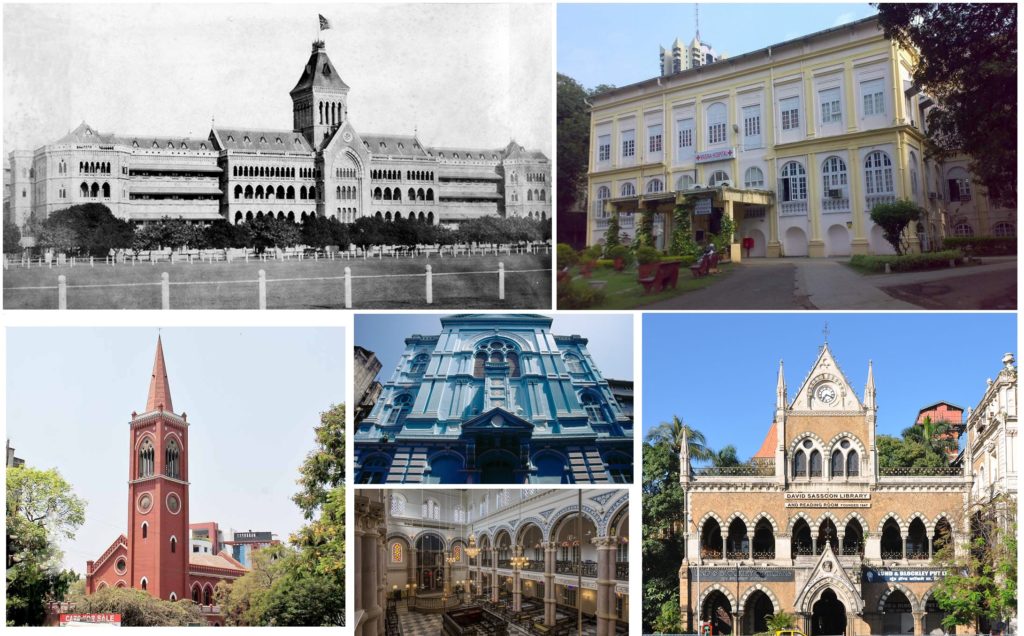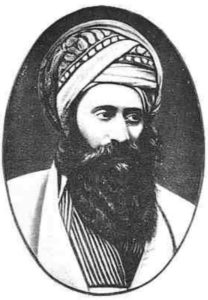In honour of Jew of the Week’s 9th birthday this November, we will feature a month-long series on the Sassoon family, the “Rothschilds of the East”. This is Part 2. Click here to read Part 1, and here to read Part 3.
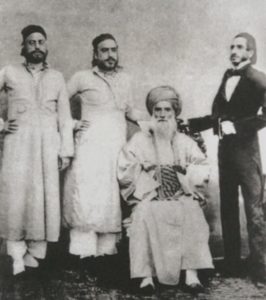
David Sassoon (seated) and his sons (left to right) Elias, Albert, and Sasson David.
Abdullah David Sassoon (1818-1896), the eldest son of David Sassoon, was born in Baghdad and raised in Bombay, India. He took over as head of the family business when his father passed away. At the same time, he served on Bombay’s Legislative Council, helping to run the bustling city. In 1873, Abdullah took a trip to England and decided to settle there. He formally changed his name to “Albert”, and moved the headquarters of the business to London, leaving the Bombay branch to his younger brother Solomon. In 1874, Albert opened a new subsidiary, Sassoon Spinning and Weaving Company, and the following year built the Sassoon Docks, the first wet docks in Western India, which still operate today in Mumbai. He paid for the reconstruction of the prestigious Elphinstone High School, and turned one of the family homes into India’s first and oldest museum. In 1866 he was awarded the Order of the Star of India, and in 1872 was made a British Knight Companion of the Order of Bath. The Shah of Persia awarded him the Order of Lion and Sun for his work in Persia’s development, and Queen Victoria knighted him and made him a baronet in 1890. He founded the David Sassoon Benevolent Institution, which provided thousands of scholarships to support the education of both Indians and Jews.
The second son of David Sassoon, Eliyahu David Sassoon (1820-1880), was also born in Baghdad and raised in Bombay. At the age of 24, he moved to Guangzhou to start a branch of the family business in China. He later oversaw further expansion across China and into much of Japan. In 1867, Eliyahu (now known more commonly as Elias) decided to break off from the family business and start his own company, E.D. Sassoon & Co. He abandoned the opium trade—which was now showing its unfortunate side-effects—and instead traded in fruits, spices, and teas, as well as silks and metals. He built what is probably the first synagogue in Hong Kong, as well as Maternity Hospital and the Sassoon Infirm Asylum in Pune, India.
The third son, Sasson David Sassoon (1832-1867) was born in Bombay, but sent to study in Baghdad’s illustrious Jewish schools. Despite being born with a heart defect and being chronically ill, Sasson worked hard for the family business and travelled widely. He first ran the Shanghai branch, then in 1858 moved to London to open his own bank. Sasson was renowned for his wisdom and ability to speak multiple languages at ease. In fact, he was the head Hebrew examiner at the London Jews’ Free School, then the world’s largest Jewish school with over 4000 students. He was also on the council of Jews’ College and was the gabbai (warden) of London’s Spanish and Portuguese Synagogue. Sasson financially supported all of these institutions, too, among many others in London. He presided over a committee that sent an expedition to the Jews of “China, Abyssinia, and the East”. Sadly, Sasson succumbed to his ill health at the young age of 35.
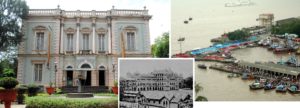
Left to right: Albert Museum, India’s first and oldest museum, converted from an old Sassoon family home; the Elphinstone High School; Sassoon Docks, the first wet docks in Mumbai.
Words of the Week
Money doesn’t excite me, my ideas excite me.
– Walt Disney

